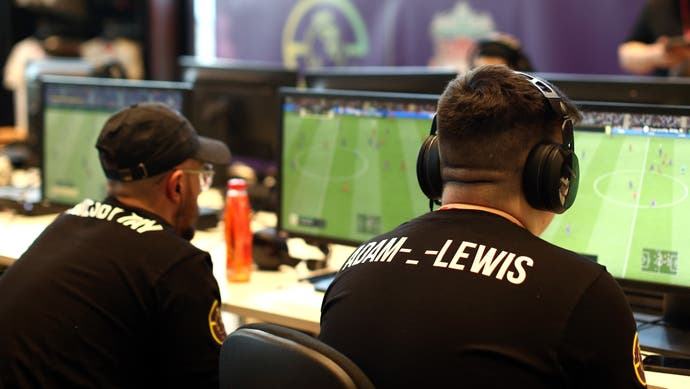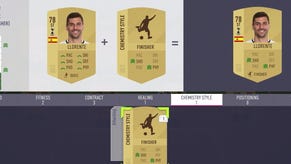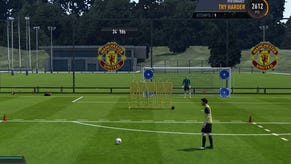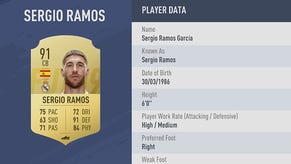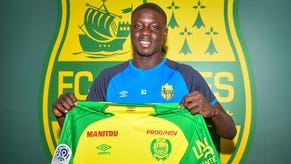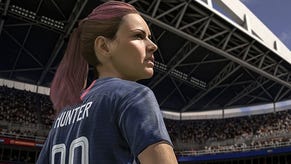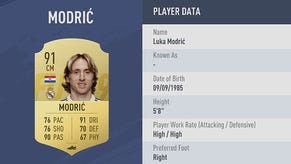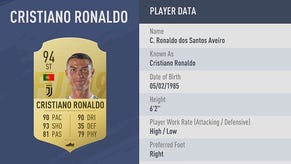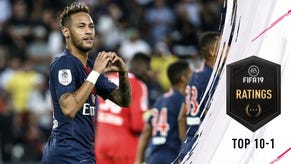What the pros really think of FIFA 19
"FIFA has never been as pay-to-win as it is now."
Next week, 40 FIFA 19 players representing the 20 Premier League clubs will compete at the ePremier League Final in London. This gathering of the best FIFA players in the UK is one hell of a shop-window opportunity - the two-day tournament will be broadcast live on Sky Sports, sandwiched between real-life football coverage and ad breaks packed with betting promos. The winner isn't just guaranteed a trophy - they're guaranteed exposure.
But while this culmination of the inaugural ePremier League is supposed to be a celebration of FIFA 19 as an esport and those in the UK who play it competitively, behind the scenes FIFA 19 is not thought to be in the best of places.
"The current state, I don't think it's brilliant," Dan Hilliard, who represents Brighton / PS4 in the ePL, tells me in a phone interview.
"There's a lot that can be done to improve it."
Speak to those who takes FIFA seriously, those who play as often as they can in a bid to qualify for the open-to-all Weekend League tournament, or, if they're particularly good, take part in online qualifiers that could lead to a spot at an official EA tournament, and you hear the same complaints crop up. Players take issue with input lag in online games (this, one FIFA pro tells me, makes it feel like a different game compared to playing locally) and unanimously call on EA to improve the tech powering Ultimate Team's online play (EA Sports recently improved online responsiveness, although pros say it's too early to tell if the changes have worked). But pros are also unanimous in their complaints about the gameplay underpinning FIFA 19 - all this despite a meta-changing patch issued early 2019.
So, what's the problem? Pre-patch, FIFA 19 had a sure-fire way of scoring: the timed finesse first-time shot. This shot would invariably fly into the top-corner from any angle. The New Year patch essentially scrubbed this shot from the game, forcing players to find a new meta. And find it they did.
The El Tornado cross has become the new sure-fire way of scoring. This relatively simple skill technique sees the player on the ball - invariably French superstar Kylian Mbappé, ex-FIFA cover star Cristiano Ronaldo or another skillful player - stop, spin then flick the ball up. Like a tornado. From there you cross the ball into the box for a headed goal. Players have found crossing from an El Tornado increases the chances of scoring a headed goal, so of course pretty much everyone is doing it.
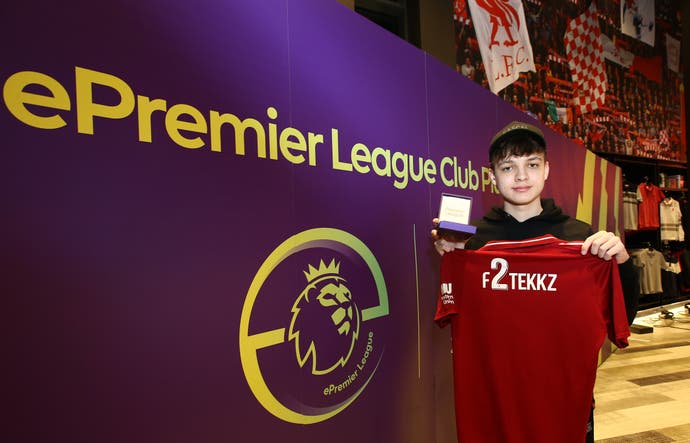
"The El Tornado cross is the best way to score at the moment," 17-year-old Donovan "F2Tekkz" Hunt, who represents Liverpool / Xbox One and is widely considered to be one of, if not the best FIFA player in the world right now, tells Eurogamer.
"That's the meta, so everyone's going to do an El Tornado cross to win. It doesn't look the nicest, but if it works all players are going to do it."
The FIFA 19 meta is interesting in that it seems contradictory. Players want a way of scoring that's consistently successful, and the El Tornado, like the first-time finesse before it, is very much that, but they don't want that way of scoring to be cheap. In FIFA 18, the meta was dominated by the low driven shot, which was a consistently successful tactic for scoring. But you had to work your way into the box, breaking down your opponent's defense along the way, to earn a low driven shot. The El Tornado cross header requires less work. A lot less work.
Having a consistently successful way of scoring in FIFA 19 surely makes the game boring, I suggest.
"Granted it is boring, but if you're good enough to get into those positions time and time again, I think you should be rewarded for that," Hilliard argues, thinking back to the low driven shot of yesteryear. "Let's say you have 10 of those, miss them all, then someone goes up the other end, has a half chance and scores their one out of one. That's frustrating."
EA, of course, would argue that kind of situation is just like those admittedly rare times Manchester City, for example, will have 80 per cent possession and miss 20 easy chances only for their opponent to grab a win with an injury time goal from their only shot. That's football, isn't it?
"That depends," Hilliard says, "on whether you're going for a real-life football simulator game, or whether you're going for, as it is, as an online virtual game. Most of the goals at the minute are El Tornado cross headers - and how many of them do you ever see in a game?"
It's a fair point.
The gameplay issues don't end at scoring goals. In fact there's a very serious one at the other end of the pitch. FIFA has had a problem with AI defending for some time now, and FIFA 19 has it bad. You're better off, the pros say, letting the AI defend for you, with you instead controlling a player who is not close to the ball. The AI will even, from time to time, intercept the ball for you. This isn't fun, rewarding or particularly satisfying to break down.
"The AI should be nerfed because right now it's very very good," says 19-year-old Swedish pro FIFA player Simon "Zimme" Nystedt, who represents Spurs on PS4 and is on the books of esports mega org Fnatic. "You don't even need to defend because the AI is just doing everything for you."
If you check out the FIFA subreddit from time to time, or follow any of the more popular FIFA players on social media, you'll know about the AI defending. It's something you see players call on EA Sports to patch year round. They want more control over the defending - or, they want manual control of defenders to be easier so choosing to go manual is a viable option. But here we are, six months into the life of FIFA 19, and it remains in a bit of a state.
Players blame the AI defending for a perceived lower skill gap with FIFA 19 than with previous games in the series. "Anyone can beat anyone really," Hilliard says. "If you go to any other esport, that's not really the case."
This taps in to a feeling that FIFA 19 is too random a video game for it to be played competitively. This is an initially odd thought. Real life football, of course, is incredibly random. Who will win out in a tackle? It's hard to tell. Where will a shot go? Again, hard to tell. How will the ball bounce? Now that one's almost impossible to tell when there are 22 players kicking it this way and that for 90 minutes.
Shouldn't FIFA 19, then, be a somewhat random game? The pros think not. They view FIFA the game like real world footballers view referees: at the end of the day, all they want is consistency.
It's not all doom and gloom, of course. Millions of people play FIFA 19 and enjoy it, and the pros play it because, underneath it all, they get a kick out of winning. Indeed, Nystedt says, post-timed finesse shot nerf, FIFA 19 "has never been more balanced" - despite the new meta. But then we move on to the thorny issue of FIFA Ultimate Team as a pay-to-win mechanic, and it's pretty much all downhill.
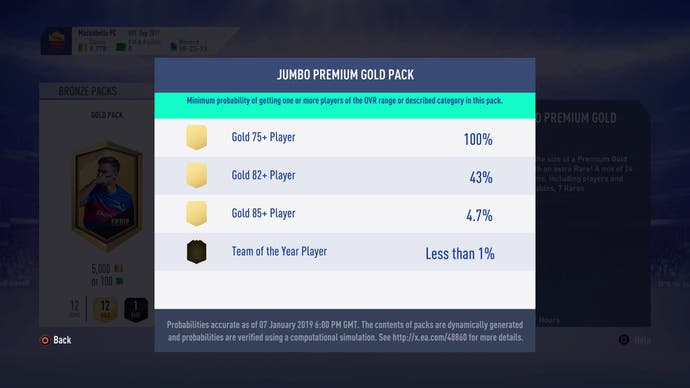
When I ask the pros whether they think FIFA 19 is pay-to-win, I expect diplomatic answers. Don't bite the hand that feeds you and all that. But the answers I get are surprisingly devoid of spin. FIFA 19 is, unequivocally, pay-to-win, they say.
For the uninitiated, here's how it works: in FIFA Ultimate Team, you buy packs of cards either with a virtual currency bought with real-world money, or a virtual currency bought with another virtual currency you earn through gameplay. Inside the packs of cards is a random assortment of items. You might get a high-rated player, for example, or a training item, or a stadium perhaps. You can grind for the players you want through gameplay and playing the market, but the upshot is, throwing money at Ultimate Team will likely get you to where you want to be faster - and having the best players makes a real difference on the pitch.
FUT make EA billions because there are millions of people buying packs, but for the pros, the considerations are different. Online qualifiers task players with using their own Ultimate Teams. If you don't have the best cards - or the meta cards - you'll be at a disadvantage. And so, early days in FIFA 19's life at least, pros spend money trying to compete.
But there's something about FIFA 19 that makes it even more of a pay-to-win experience than previous games in the series, the pros say.
"This year is very pay-to-win," Hilliard says. "Everybody knows that. If you spend a lot of money on the game and you have a really good team, that will carry you through quite a lot of games. It is pay-to-win 100 per cent. As soon as I started putting better players into my team, I massively noticed the difference. They'll get more of those random bounces and more of the luck, it seems."
Hilliard, who spent around £50 on packs when FIFA 19 came out and has worked his way up since, says competitive players have to have certain cards to compete. Cards such as ultra rare Icons Ruud Gullit, Patrick Viera and Brazilian Ronaldo, coveted Team of the Year Kylian Mbappé, Neymar and Cristiano Ronaldo. "Of course, if you're a casual player, you'll be lucky to have any of them, to be honest, the price they are," Hilliard says. "I've got Ronaldo and the base meta cards. Obviously the TOTY versions would be a lot better."
Hunt tells me he spent about £100 to qualify for a FIFA 18 tournament, "But this year I've put in a bit more because I can." How much? "I'm not sure. No idea!"
"I've spent a bit of money on the game, but I don't really mind what team I have to use, or what players I have to use," he says.
Hunt won't tell me how much he's spent on FUT this year, but he's clear on one thing.
"FIFA is pay-to-win in the sense of, if you pay more money you'll get better players and your players can do more," he says.
Nystedt goes further: "FIFA has never been as pay-to-win as it is now," he says. The Fnatic-backed pro tells me he's spent over £3500 on FIFA 19 in order to get the players he feels he needs to compete. I find this an astonishing amount, and so does he. "That's way way to much," he says. "It shouldn't be like this. You should never have an advantage just for paying.
"I know for sure there are pros who haven't spent that much and they're still qualifying for events, but it's way way harder. I want to make it as easy as possible."
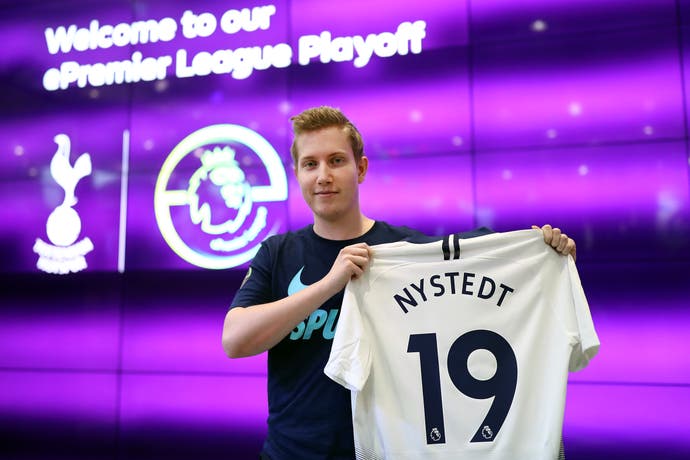
The money Nystedt has spent was used to open pack after pack after pack. It's highly unlikely to pack the players needed to compete at the top level, so what he's trying to do here is pack players he'll sell to earn coins that are then used to buy the players he actually wants directly from the in-game auction house. Nystedt could, of course, have got lucky and packed Brazilian Ronaldo, but he didn't. Most don't. (Brazilian Ronaldo, by the way, will set you back around seven million coins on the auction house.)
EA Sports' answer to the pay-to-win issue with online qualifiers is to implement team restrictions mid-season. This limits the number of Icons, for example, you can use in your Ultimate Team. While the pros back the idea, they regret the timing. Essentially it makes a lot of the cards they've spent a lot of time and virtual currency on redundant. But there is hope EA Sports will enforce team restrictions for the start of FIFA 20, which will no doubt come out September 2019. Perhaps it'll even extend it to other modes us mere FUT mortals like to play.
Nystedt has another idea: he wants a new game mode just for competitive matches. Currently, online qualifiers are played on FUT friendly seasons, where players invite their opponent into a match. But this new game mode would provide players with the best team unlocked from the start - and a different, better server to play on. Everyone on a level playing field and on the best connection possible. This, Nystedt says, would be "perfect".
There's half a year of life left in FIFA 19, but most are already thinking about FIFA 20. EA Sports is under a degree of pressure to nail gameplay with the next game, given the negativity surrounding FIFA 19. Less randomness, a less cheap meta, less pay-to-win - that sort of stuff crops up when you ask what people want from the next FIFA.
"I'm hoping next year the meta isn't headers, that it's nice-playing football," Hunt says. "Passing in the attack and manually defending. This year, the best way to defend is to not control the player near the ball so the AI defends. I'd like it where you get rewarded for controlling your players. For example, I control my players even though it's not the best way to defend. But it can be a bit difficult at times. Next year I'm hoping it's easier to control your players and defend well."
In a way, EA Sports finds itself stuck between a rock and a hard place as it works out what kind of game FIFA should be. While FIFA esports remains niche in the context of the likes of League of Legends, Dota 2 and Overwatch, it's growing. And with hardcore modes such as the FUT Weekend League proving increasingly popular, the developers must cater for hardcore players - players who want to manually control defenders, who want advanced play to pay off, who want modes just for them.
But most FIFA players are not hardcore, nor do they care about FIFA as an esport. They just want to have a good time with a video game that respects their time. They want to pack CR7, take him online and score a spectacular volley off an El Tornado flick. Just like CR7 in real life.
This is a problem for the developers at EA Sports to solve. And, if the company follows its normal timing for announcements, we'll start to find out about its solution soon enough. In the here and now, though, FIFA 19 finds itself in a tricky spot. Nothing will stop the UK's best FIFA players from competing at the ePL Final next week - and they'll no doubt have a blast during the event. But later, when they get home and think about playing another round of online qualifiers next month, the reality of competitive FIFA 19 - and the horror of more El Tornado cross header goals - will kick in.
